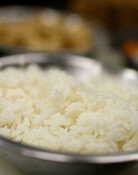[Analysis] When Will the Won`s Plunge Bottom Out?
[Analysis] When Will the Won`s Plunge Bottom Out?
Posted November. 22, 2008 09:32,
When panic gripped the domestic financial market in the wake of the collapse of U.S. investment bank Lehman Brothers Sept. 15, the government made all-out efforts to protect the market by injecting 133 trillion won (88.9 billion U.S. dollars) in financial and corporate assistance. The central bank has also cut the benchmark interest rate 1.25 percentage points over the past month.
These efforts have led to a cut in Koreas foreign reserves to 212.2 billion won, down 27.4 billion won from a month ago.
Despite these measures, no rebound is expected for the plunging won anytime soon. The won-dollar rate temporarily had stabilized to the 1,200 level after the currency swap deal with the United States, it now hovering around 1,400.
Experts say the fundamental reason for the weak won is the surging demand for the greenback due to the dollar shortage in the process of massive sellouts and retrieval of stocks and bond investment by foreign investors.
In addition, the volume of daily trading in the forex market has shrunk to a meager two billion to three billion dollars, something which has rocked the exchange rate.
Given that the major reason for the dollar shortage lies in the fear of the global financial recession, which will hardly disappear overnight, no quick fix for the rising won-dollar exchange is in sight, said Kim Du-hyeong, a deputy manager at Korea Exchange Bank.
○ Change in the governments approach
The government, however, still remains idle in the foreign exchange market due to lack of a single effective measure. It apparently believes intervention in the midst of the spread of the global financial crisis will only end up wasting foreign currency reserves.
The changed economic situation also gives room for the government to take a different approach toward the foreign exchange market.
In July, when the government aggressively intervened in the market to allay inflation fears, stemming the surging value of the won was the most pressing task. The situation has greatly changed since then, with the price of Dubai crude now under 50 dollars a barrel.
With the global financial crisis prolonging, one of the most important policies is to defend the governments solvency by securing foreign reserves.
Since the plummeting won has resulted in a turnabout in balance of payments, the government seems less worried over the wons value. At least for the short term, the current account surplus will have a significant influence on the markets psychological stabilization.
○ Market evaluation remains positive
On the shift of the governments foreign exchange policy, one foreign currency dealer expressed worry by saying, Since the current situation is leaning toward dollar demand, the lack of active state intervention will cause the won to experience a freefall down the road.
A large number of experts agree, however, that the government should intervene only when the fluctuation of the won-dollar rate makes it hard to engage in economic activities and run business.
Shin Min-yeong of LG Economic Research Institute said, The government is likely to waste foreign reserves if it goes overboard in foreign exchange intervention. A more proper measure is to keep an eye on the situation. Since everyone agrees that the won-dollar rate is too high, it will slowly but surely return to the normal.
Kang Seok-hun, an economics professor at Sungshin Womens University, said, Arbitrary intervention in the foreign exchange rate will bring harmful effects and does no good in the end. The main reasons for flight of foreign capital are excessive household debts and the possibility of financial collapse arising from the housing bubble. To remove these unsettling factors, the government should come up with comprehensive and preemptive measures to live up to market expectations.
Against this background, the government has cautiously predicted that the won-dollar rate is interdependent and regulated by a consensus psychological margin.
The won-dollar rate sometimes breaks the 1,500 level, but soon falls again. So there seems to be a psychological barrier on which market participants agree, said Choi Jong-guk, a senior official at the Strategic Planning and Finance Ministry.






